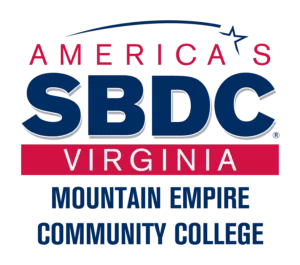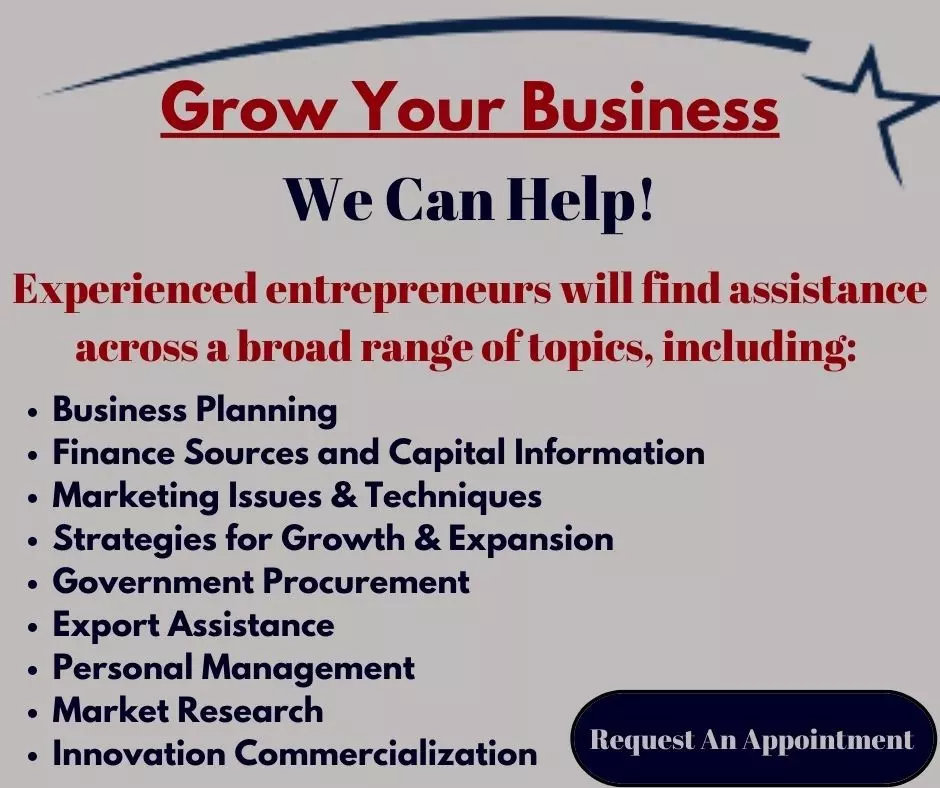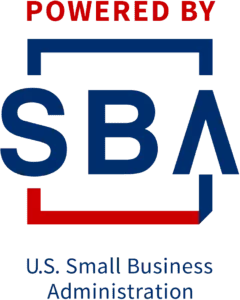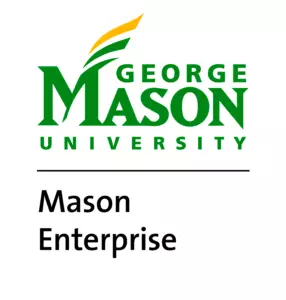Does your business need assistance? Services are confidential and there is no charge for counseling services. Let us help you save time with your business projects MECC\’s Small Business Development Center provides the following services:
-
Management Skills
-
Business Information
-
Business Planning
-
Productivity Improvement
-
Workshops
-
Networking Assistance
-
Loan Application Assistance
-
Sources of business financing
-
Financial Analysis
-
Marketing
-
Permits, licenses and taxes
Don’t know where to get started? Click here to request counseling.
Grant Search Sources: Grants.gov: (www.grants.gov) this is a federal database that provides details on all federal government grant opportunities
SAM.gov: (www.sam.gov) this website also offers information on federal grant opportunities
OpenGrants: (www.opengrants.io) a very comprehensive data set of public and private grants in the US
GrantWatch: (www.grantwatch.com) this is a subscription-based site that provides information on public and private grant sources. They have a database of over 25,000 grants
Federal Grant Programs:
SBIR grants: (www.sbir.gov) this program focuses on technology with the potential for commercialization
STTR grants: (www.nsf.gov) program expands funding for innovative research and the development of leveraging existing technology DoD grants: (www.grants.gov) this program is a sub-set of the STTR funding initiative
DOE grants: (www.science.energy.gov/sbir) offered via both SBIR and STTR programs NIH grants: (www.nih.gov) these grants are for businesses developing and researching biomedical technology
DOJ grants: (www.justice.gov) these fund projects that support law enforcement, public safety activities, and the criminal justice system
DOI grants: (www.doi.gov) grants are offered via several departments, all related to interior department initiatives
DOA grants: (www.rd.usda.gov) grants are offered via the Department of Agriculture to create quality jobs and those that provide needed services in rural areas
NIFA grants: (www.nifa.usda.gov) The National Institute of Food and Agriculture (NIFA), are offered only to non-profits and larger businesses
STEP grants: these are offered to small businesses engaged in exporting, and interested parties should check with the SBA’s Office of International Trade for details
NAV grants: (www.nav.com) offers quarterly grants of $10,000 to help solve a business problem or take applicant’s business to the next level
Up & Running grants: (www.helloalice.com) funding of $10,000 is granted to 50 awardees nationally in cash, coaching, and eBay education.
Grants for Minority-Owned and Women-Owned Businesses:
The Galaxy grant: offered by Hidden Star, a Texas-based 501(3)(C), and offer up to $2,900 to women and minority-owned businesses
The Coalition to Back Black Businesses: grants range from $5,000 – $25,000, and distribute the smaller awards in the fall, with the larger awards being offered during the summer. In addition to cash awards, the program is planning to offer other support services and training worth over $14 million over a 4-year timespan. The business must be in an economically-vulnerable community verified via the “Distressed Communities Index”
The Girlboss Foundation grant: these awards are for $15,000 and are geared towards firms that will create innovations in design, music, arts, and fashion industries. Awards are made 2X per year
Kitty Fund grant: these are micro-grants of $500 with awards intended to help mothers grow their businesses, and they must have at least 2 employees
Amber grant: these range from $4,000 – $30,000 per award, and awards are made monthly. In addition, they offer “year-end” grants of $25,000. Applicant businesses must be women-owned, and owners must be able to explain how the business will use the funds
It should be noted that some localities and local organizations also provide grants, so interested parties may want to check with local resources for these opportunities. Also, this is not an all-inclusive list of grants that may be available but is intended to be representative of different options for small businesses seeking grant funding. Furthermore, it should be noted that these programs are generally not intended to fund start-up businesses, and many are focused on specific industries that require a significant level of expertise on the part of the applicant company’s owners.
 Virginia Small Business Development Center (SBDC) The Virginia Small Business Development Center (SBDC) located at Mountain Empire Community College offers free business consulting, affordable training courses, personal referrals to local resources, guidance, insights, and connections to help businesses succeed. The Small Business Development Center at Mountain Empire Community College is funded in part through a cooperative agreement with the U.S. Small Business Administration. All opinions, conclusions or recommendations expressed are those of the author(s) and do not necessarily reflect the views of the SBA.
Virginia Small Business Development Center (SBDC) The Virginia Small Business Development Center (SBDC) located at Mountain Empire Community College offers free business consulting, affordable training courses, personal referrals to local resources, guidance, insights, and connections to help businesses succeed. The Small Business Development Center at Mountain Empire Community College is funded in part through a cooperative agreement with the U.S. Small Business Administration. All opinions, conclusions or recommendations expressed are those of the author(s) and do not necessarily reflect the views of the SBA.

